Legal synchronisation can unlock agro-tourism potential
At a conference on solutions to develop and promote investment in real estate for agricultural tourism in Vietnam on May 25 in Hanoi, an action programme was discussed to create motivation for agro-tourism and rural development.
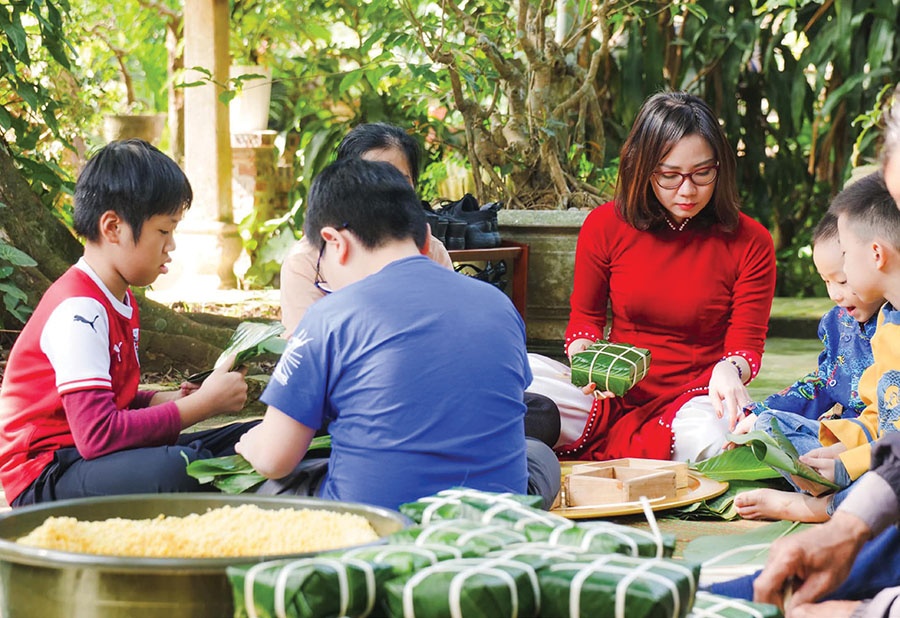 |
| Legal synchronisation can unlock agro-tourism potential |
Organised by the Vietnam National Administration of Tourism and the Vietnam National Real Estate Association (VNREA), it was the first time that a large-scale event discussed such issues.
Nguyen Van Khoi, chairman of VNREA, said that the development of agricultural tourism is gradually becoming a trend in rural areas, especially in agricultural economy countries like Vietnam. It not only benefits the industry but also contributes to increasing the value of the land, raising opportunities for economic development, and improving the lives of local people.
“In order to increase the value of the land through the development of agricultural and rural tourism, a sustainable development strategy is needed, based on core competencies to create new, unique, and highly competitive tourism products,” said Khoi.
He hoped that the conference would propose solutions to solve difficulties in the real estate market, including real estate for the agro-forestry-fishery sector.
“One of the most important issues is the synchronisation of laws, mechanisms, and policies, planning and development investment programmes, and management among the fields of tourism, real estate, and agriculture,” added Khoi.
Agricultural and rural tourism, which can include the farmstay model (see box) can preserve and develop the culture, history, and traditions of an area, as well as open up many new business opportunities for local people.
“However, obstacles in the legal framework have caused many difficulties for this sector. Therefore, it is necessary to review, amend, supplement, and complete this for the real estate market, and agro-tourism real estate in particular, to become consistent and synchronous,” said Khoi.
Nguyen Quang Tuyen, dean of Economic Law Faculty at Hanoi Law University, said that farmstays are still developing spontaneously and are small and unprofessional compared to other real estate segments. “One of the reasons is the lack of a legal system to regulate and encourage capable domestic and foreign investors to participate in the development of agricultural tourism real estate, and create a breakthrough in attracting more visitors,” said Tuyen.
For example, the Law on Land 2013 does not yet specify planning on using agricultural land for tourism and does not have a definition for it.
“Without identifying and decoding the concept of such land, the current land law does not provide specific provisions on registration and issuance of land use right certificates; changing the land use purpose from agricultural land to agro-tourism land,” urged Tuyen.
Nguyen Van Chung from Department of Cooperatives and Rural Development under the Ministry of Agriculture and Rural Development said that the ministry is submitting to the government a draft decree on encouraging farm economic development, which is divided into three groups. One of them consists of supporting policies for farms that combine tourism activities.
Rural tourism development is an important orientation in Vietnam’s development strategy and in the National Target Programme on building new rural areas before 2025. By the end of 2022, the country had 580 recognised tourist destinations, and nearly 1,500 others operating. About 70 per cent of them are in rural areas, exploiting the characteristics of farming and agriculture.
| Farmstays are accommodations for visitors who want to experience the daily work of a farmer, enjoy a quiet space, and even work on the farm itself. During a farmstay, tourists can help breed cattle and poultry, deal with rice, and plant fruit trees or green vegetables, among other things. The products harvested can be used as cooking ingredients at the resort. Farmstay owners can earn money through the accommodation and agricultural experience services, as well as selling its products. |
*--*--*
| Nguyen Dao Dung - Deputy director, Travel Department Vietnam National Administration of Tourism
Vietnam has abundant agricultural and rural resources without much investment – agricultural land accounts for nearly 85 per cent of the country, spreading across localities and regions, and diverse conditions. There are a lot of intangible cultural values such as festivals, folk performing arts, traditional crafts, and ethnic communities. In order to preserve and promote traditional cultural values and ecological environment, farmstays should pay attention to some orientations. First is focusing on developing tourism in areas with favourable conditions, exploiting the outstanding strengths of every rural area, and giving priority to synchronous rural tourist attractions and good infrastructure in connection with tourist routes nearby, and with tourist centres. Second is developing rural tourism services with high quality, creativity, cultural differences, and ecological landscapes based on the advantages of each locality, suitable to the needs of the market – like rural resorts, healthcare, diversity of experiences, and new product lines. We should enhance the quality of the rural tourism workforce, service skills, and governance, as well as apply digital transformation. The third aspect is delivering rural tourism products in association with target markets, including the domestic tourist market. Some of these developers are maintaining a high number of visitors and good revenue. Targeting to increase spending and prolonging the stay of tourists in rural areas is another good idea, aiming at the high-spending market. We should exploit the tourism value chain on the basis of linking with related industries and services of rural areas to provide diverse experiences to visitors. Pham Thanh Tung - Deputy head Institute for Agriculture and Tourism
The trend of developing green, environmentally friendly tourism and experiencing indigenous culture is increasingly interesting in. Travellers like families and small groups want to enhance new experiences and look for new tourist destinations that are accessible and safe. These criteria are completely suitable for rural tourism destinations, close to nature and indigenous cultural values. Promoting agricultural and rural tourism will enable agricultural products and rural cultural identity to become resources. Tourism development needs cultural identity, and agriculture is an economic sector with identity. The countryside is a place to fully preserve spiritual life, national culture, and core spiritual values. Meanwhile, other types of tourism such as beach resorts are being modularised, without uniqueness. Five-star hotels in Vietnam, the United States, Singapore, and South Korea are not much different if under the same developer. Becoming a farmstay or agro-tourism country, Vietnam can lead the world’s tourism trend, provide new and different tourism products to increase competitiveness and diversify tourism products, and promote the development of related industries such as transportation, consumption, and education. We will also get many agricultural benefits, such as conservation and development of natural ecosystems, local export of agricultural products at high prices, and development of Vietnam’s agricultural brands. There are also environmental benefits like raising people’s awareness about clean agriculture, protecting the environment, and increasing revenue from selling environmental certificates. Nguyen Ngoc Bich - CEO, Rustic Hospitality Group
Farmstays in Vietnam are currently being developed by two target groups. Firstly, the people with large-scale farms make their own farmstays. These are built spontaneously with no specific standards and the owners do not understand much about tourism, so it is easy to encounter problems with planning, operating permits, and project operation ability. The second group consists of investors with capital and related experience. These investors may face a number of problems with the procedure of applying for a permit to convert from agricultural land to commercial-service land, or applying for a farm permit, but in fact, they are in the real estate business. Unfortunately, Vietnam does not have specific and uniform standards for this model. The Ministry of Agriculture and Rural Development and the tourism industry need to have a meeting to build a standard farmstay model with specified criteria for area, size of accommodation, experience activities, and search for more sets of criteria that have been recognised by prestigious organisations around the world to be able to assess the quality of the farmstay’s activities. A separate working group on the development of the farmstay model should also be established to be able to provide timely assessments or advice. Vietnam can learn from Taiwan or Indonesia on how to build farmstays methodically and professionally. They have specific standards for scale and services including land area, products, experience value chains, processing and production areas, and additional educational programmes on agriculture – as well as the ways to provide great customer services to maximise the effectiveness of the farmstay model. |
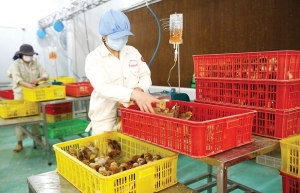 | Agricultural dealings move to the forefront Investors in agriculture are eager to get involved in merger and acquisition deals to mobilise capital for recovering and expanding their operations in this country. |
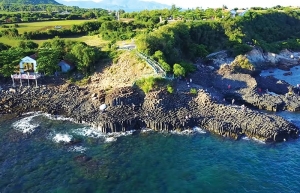 | Phu Yen tourism highlights safety and green tourism for rebound Tourism businesses in Phu Yen province are looking for opportunities to recover with safe products for tourists, service workers, and the community. |
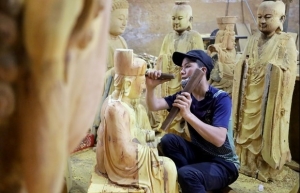 | Hanoi moves to develop agricultural, rural tourism The People’s Committee of Hanoi has made a plan on developing agricultural and rural tourism in tandem with new-style rural area building during 2022 - 2025, part of efforts to boost sustainable tourism development. |
What the stars mean:
★ Poor ★ ★ Promising ★★★ Good ★★★★ Very good ★★★★★ Exceptional
Related Contents
Latest News
More News
- Visa data highlights five key payment and travel trends in Vietnam for 2026 (January 14, 2026 | 10:42)
- New Year tourism receipts top $40m in key cities (January 06, 2026 | 08:36)
- Vietnamese passport climbs on global ranking (December 16, 2025 | 08:00)
- Manila becomes a new check-in destination for Vietnamese youth (December 11, 2025 | 18:07)
- Vietjet launches mega year-end ticket promotion (December 10, 2025 | 11:33)
- Dalat leads Vietnam’s 2025 search trends (December 09, 2025 | 13:44)
- Vietnam welcomes record wave of international visitors (December 09, 2025 | 13:43)
- Vietjet launches daily Manila flights to celebrate year-end festive peak season (December 05, 2025 | 13:47)
- The destinations powering Vietnam’s festive season travel demand (December 04, 2025 | 18:33)
- Vietnam named among the world’s most exciting winter destinations (December 04, 2025 | 15:10)

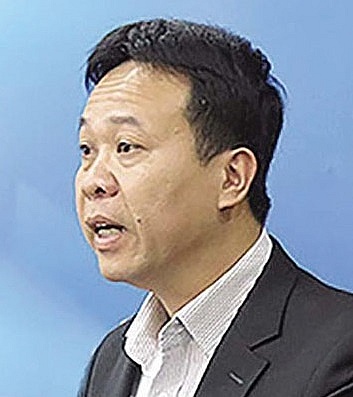
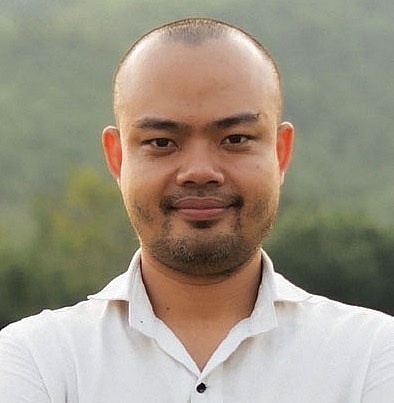
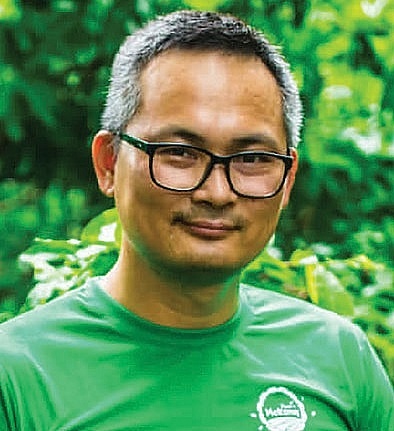
 Tag:
Tag:


















 Mobile Version
Mobile Version